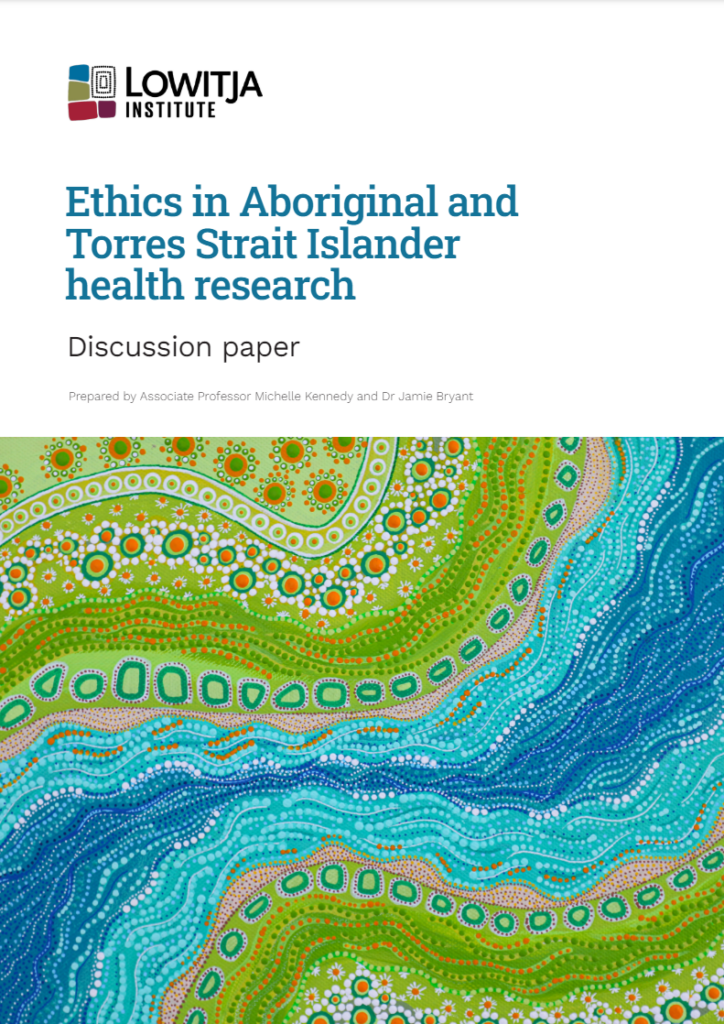Ethics for Aboriginal and Torres Strait Islander health research
Ethics approval processes in Aboriginal and Torres Strait Islander health exist to ensure that research involving Aboriginal and Torres Strait Islander people is conducted in an ethical and culturally appropriate manner. However, despite
the existence of longstanding guidelines and a national commitment to uphold and promote ethical research involving Aboriginal and Torres Strait Islander people, there remains continued concern that current ethics approval processes
do not fully uphold key values and principles, fail to adequately incorporate Aboriginal and Torres Strait Islander perspectives and input, and do not ensure adequate representation of Aboriginal and Torres Strait Islander voices.
Lowitja Institute’s discussion paper, Ethics in Aboriginal and Torres Strait Islander health research, identified a suite of reforms needed to ensure that Aboriginal and Torres Strait Islander health research is conducted to the highest ethical and governance standards, with the greatest impact on improving health outcomes for our communities.
Developed by Associate Professor Michelle Kennedy (Wiradjuri) and Dr Jamie Bryant, the paper presents key findings from a scoping review of academic and grey literature that aimed to identify key gaps in ethical processes and practices for health research involving Aboriginal and Torres Strait Islander peoples. Lowitja Institute commissioned this discussion paper based on Associate Professor Kennedy’s work leading the Murru Minya study – a national study that aims to develop new knowledge about the implementation of ethical processes in Aboriginal and Torres Strait Islander health research, and to issue practical recommendations to strengthen research processes, build the research workforce and ultimately improve health outcomes for Aboriginal and Torres Strait Islander peoples.
We call on universities, research institutes, research funders, and relevant government agencies in all jurisdictions to implement the recommendations put forward in this discussion paper. Doing so will move us closer to a research landscape that respects, upholds, and promotes the ethical principles and values that are essential when conducting research involving Aboriginal and Torres Strait Islander peoples.
Download documents


